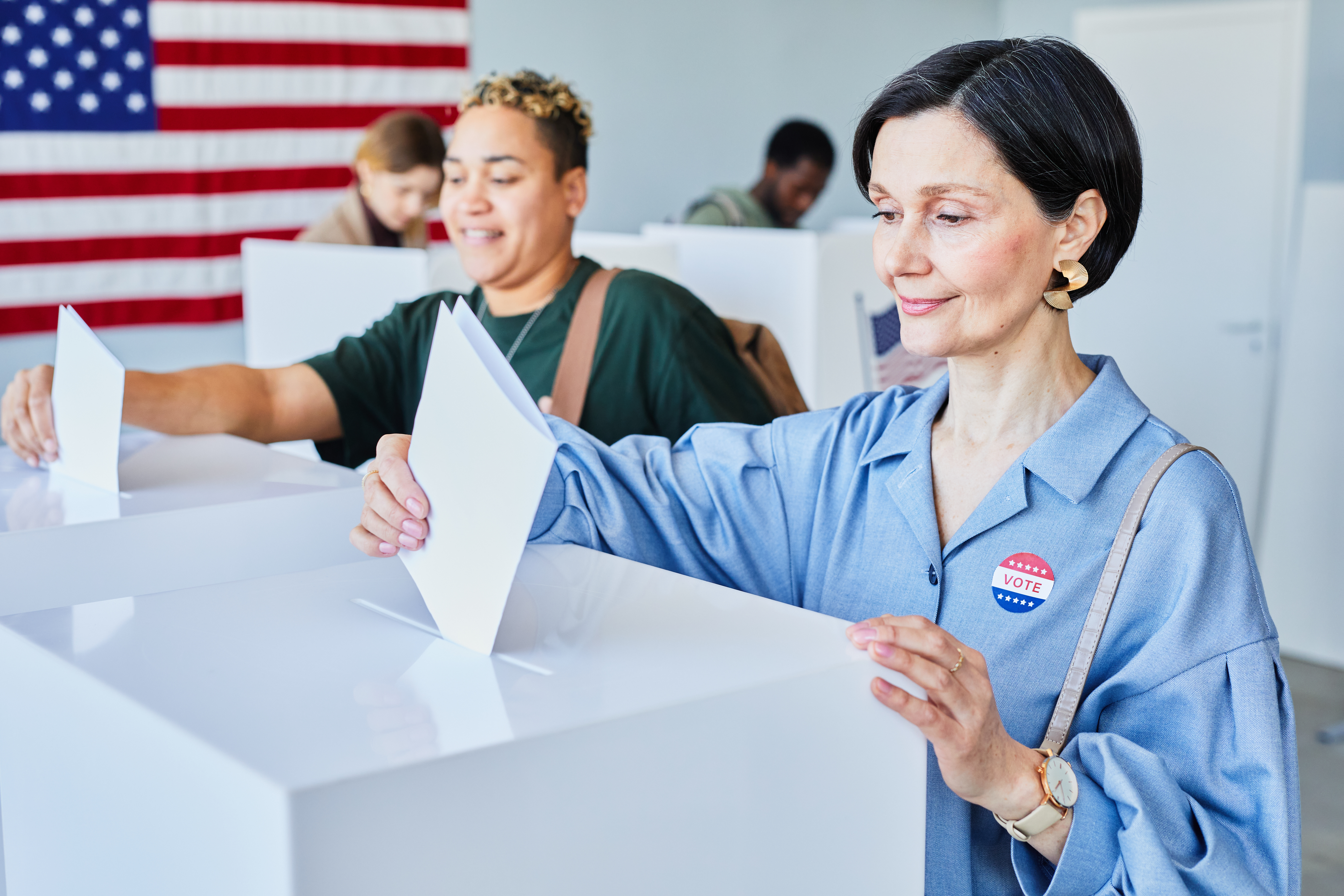Voice and Vision: Why Iranian Americans Must Vote in Every U.S. Election

By DaySun Legal Correspondent
In every election season, a familiar refrain echoes across communities: “My vote doesn’t really matter.” Yet history, time and again, proves otherwise. For Iranian Americans — a growing, dynamic community of professionals, entrepreneurs, artists, and advocates — every ballot cast is more than a political act. It is a declaration of belonging, a bridge between heritage and democracy, and a powerful contribution to shaping the nation’s future.
From Exile to Empowerment
Many Iranian Americans came to the United States fleeing revolution, repression, or instability, in search of freedom, opportunity, and safety. Over the past four decades, they have built thriving communities, established successful businesses, and sent their children to the country’s best universities. Yet, despite their economic success and social visibility, Iranian Americans remain underrepresented in political life.
According to estimates by civic organizations, more than half a million Iranian Americans are eligible to vote. But voter turnout within this group has historically been lower than the national average. Some cite disillusionment, others cite lack of trust in political systems — legacies of authoritarianism that still cast long shadows over immigrant consciousness.
However, civic engagement in America is not merely a right; it is a responsibility — one that transforms individuals from passive residents into active architects of their shared destiny.
Voting as a Form of Visibility
The American political system responds to participation. Communities that vote regularly are heard. They gain attention from policymakers, earn respect from elected officials, and secure resources for their schools, neighborhoods, and businesses. Communities that remain silent, however, often find their concerns sidelined.
For Iranian Americans, voting is not just about choosing candidates — it’s about claiming visibility. In a political landscape where Middle Eastern and Muslim Americans have often been misrepresented or marginalized, casting a vote is a powerful counter-narrative. It says: We are here, we care, and we contribute.
It’s also an act of unity. Though Iranian Americans hold diverse political views — from progressives to conservatives, secular to devout, monarchist to reformist — the ballot box is where those differences converge into a shared expression of civic presence.
Local Elections: The Quiet Powerhouses
Presidential elections attract headlines, but local and state elections often shape daily life more directly. City councils decide on policing and housing policies; school boards influence curriculum and representation; county and state officials determine how taxes are spent and how justice is administered.
Every decision — from zoning laws to public transportation, from healthcare to environmental protection — is shaped by elected officials. Iranian American parents who care about their children’s education, small business owners concerned about local regulations, or professionals seeking fair representation all have stakes in these processes.
By voting in local elections, Iranian Americans can help elect leaders who understand and represent their interests. Moreover, consistent turnout builds political capital — the kind that opens doors for Iranian American candidates to run, win, and serve in public office.
Breaking the Psychological Barrier
Many Iranian Americans still carry deep skepticism toward politics, shaped by memories of corruption, propaganda, and lack of accountability in Iran’s former systems. But America’s democracy, while imperfect, thrives on public participation and oversight. Here, transparency, freedom of expression, and institutional checks empower citizens to hold leaders accountable — not the other way around.
Voting, therefore, is not naïve idealism; it is pragmatic self-defense. It ensures that decisions about taxes, healthcare, immigration, and education reflect the interests of all communities — including ours.
As one Iranian American community leader once said, “We left a country where our voices were silenced. Why would we choose silence again in a country that lets us speak?”
Building Influence Through Numbers
The Iranian American population — estimated at over 1.5 million — is concentrated in key states like California, Texas, New York, and Virginia. These states often swing critical votes in federal and state elections. If even a fraction of eligible Iranian Americans voted consistently, they could sway outcomes in tight races.
Political power is not given; it is earned through participation. When Iranian Americans show up at the polls, they build leverage — the ability to influence legislation, shape public debate, and secure appointments in government, education, and diplomacy.
In recent years, a new generation of Iranian American leaders has emerged, from city councils to Congress. Their presence signals a turning tide — one fueled by engagement, not apathy.
Representation and Legacy
Representation matters. When Iranian Americans vote, they help elect officials who reflect their experiences and aspirations — people who understand the complexities of dual identity, immigration, and cultural pride.
Moreover, civic participation sends a message to younger generations: democracy is not a spectator sport. It teaches children that the privileges of freedom and opportunity come with responsibilities — to vote, volunteer, and voice their values.
A Vote for the Future
Iranian Americans bring a unique worldview to the American democratic experiment — one shaped by resilience, education, and an enduring belief in progress. Their participation enriches the nation’s political fabric, adding nuance and perspective to debates about immigration, innovation, civil rights, and global relations.
But participation requires commitment. Registering to vote, learning about local issues, supporting candidates who represent shared values — these are small steps with transformative impact. Each ballot cast is a building block of representation, a signal of belonging, and an investment in the future.
The Moral of the Story: Silence is Not Neutral
Not voting doesn’t mean staying out of politics; it means letting others decide for you. Silence, in democracy, is not neutrality — it’s surrender. Every uncast vote is a missed opportunity to steer policy, protect community interests, and shape narratives.
For Iranian Americans, who come from a culture that treasures poetry, intellect, and justice, the act of voting is more than a civic duty. It is a moral gesture — a continuation of the long Persian tradition of speaking truth to power.
From Heritage to Hope
In a time when democracy faces both internal and global challenges, Iranian Americans have a chance to lead by example. Voting affirms their dual identity — proud heirs of an ancient civilization and active citizens of a modern democracy.
The story of Iranian Americans is one of perseverance, adaptation, and success. The next chapter — one of political influence and civic leadership — can only be written if every eligible member of the community participates in shaping it.
Because in the end, democracy doesn’t just happen to us — it happens through us. And every vote is a reminder that our voices, together, can build the future we all deserve.
Photo:AdobeStock

